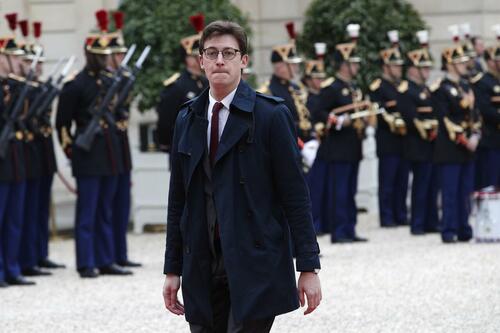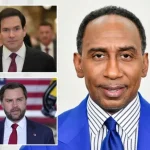
By John Cody of Remix News
A deputy for Emmanuel Macron has put forward a radical constitutional bill aiming to grant voting rights to all foreigners in French municipal elections, with the move earning harsh criticism from conservatives who warn the entire country’s future faces dire consequences if such a bill passes.

Currently, only foreigners residing in France from the European Union have the right to vote in these types of elections. However, Sacha Houlié, an MP in the French city of Vienne for Emmanuel Macron’s Renaissance party — which was recently rebranded from La République En Marche! (LaREM) — says foreigners should not only be able to vote but also run for elected office.
“This recognition is long overdue. However, we owe it to those who have often and for a long time participated in the dynamism of our society,” said Houlié, who also denounced what he said is the “discrimination between two categories of foreigners.”
Politicians from the conservative and right-wing political groups are heaping criticism on the proposed change to the country’s voting laws.
“I will oppose this project with all my might,” warns Eric Ciotti, a deputy from Nice for Les Republicans and candidate for the presidency of his party.
Marine Le Pen’s party was also quick to slam the bill.
“While (Interior Minister) Gérald Darmanin agitated the media over the (failed) expulsion of an Islamist, the Macronists quietly tabled a bill for the right to vote for foreigners, that is to say the final seizure from the French of their country. They will find the RN on their way!” wrote Jordan Bardella, the president of National Rally (RN).
The move to allow non-EU foreigners to vote in French elections has long been advocated by the left, including former President Hollande. Left-wing parties, which almost uniformly promote mass immigration across the West, have long seen replacement immigration as a means towards securing permanent electoral majorities. For example, data from the last election shows that 85 percent of Muslims ended up voting for Macron, showcasing why his party may be so interested in converting more foreigners into a stronger voting bloc. This strategy from the left seeks to offer as many voting access opportunities to foreigners, including non-citizens. Laws, such as the one advocated by politicians in Macron’s party, have been seen in cities like New York. However, a judge there recently ruled that the law was illegal.
There are signs that Macron himself is not necessarily onboard with the idea, at least not yet, with his own interior minister coming out against it.
“The minister of the interior is firmly opposed to this measure,” said an official working for Minister Gérald Darmanin.
Even if the text were to be adopted by the National Assembly and the Senate as it currently reads, the journey to becoming law would still be long because the proposed constitutional law would still have to be adopted by a national referendum.
By John Cody of Remix News
A deputy for Emmanuel Macron has put forward a radical constitutional bill aiming to grant voting rights to all foreigners in French municipal elections, with the move earning harsh criticism from conservatives who warn the entire country’s future faces dire consequences if such a bill passes.

Currently, only foreigners residing in France from the European Union have the right to vote in these types of elections. However, Sacha Houlié, an MP in the French city of Vienne for Emmanuel Macron’s Renaissance party — which was recently rebranded from La République En Marche! (LaREM) — says foreigners should not only be able to vote but also run for elected office.
“This recognition is long overdue. However, we owe it to those who have often and for a long time participated in the dynamism of our society,” said Houlié, who also denounced what he said is the “discrimination between two categories of foreigners.”
Politicians from the conservative and right-wing political groups are heaping criticism on the proposed change to the country’s voting laws.
“I will oppose this project with all my might,” warns Eric Ciotti, a deputy from Nice for Les Republicans and candidate for the presidency of his party.
Marine Le Pen’s party was also quick to slam the bill.
“While (Interior Minister) Gérald Darmanin agitated the media over the (failed) expulsion of an Islamist, the Macronists quietly tabled a bill for the right to vote for foreigners, that is to say the final seizure from the French of their country. They will find the RN on their way!” wrote Jordan Bardella, the president of National Rally (RN).
The move to allow non-EU foreigners to vote in French elections has long been advocated by the left, including former President Hollande. Left-wing parties, which almost uniformly promote mass immigration across the West, have long seen replacement immigration as a means towards securing permanent electoral majorities. For example, data from the last election shows that 85 percent of Muslims ended up voting for Macron, showcasing why his party may be so interested in converting more foreigners into a stronger voting bloc. This strategy from the left seeks to offer as many voting access opportunities to foreigners, including non-citizens. Laws, such as the one advocated by politicians in Macron’s party, have been seen in cities like New York. However, a judge there recently ruled that the law was illegal.
There are signs that Macron himself is not necessarily onboard with the idea, at least not yet, with his own interior minister coming out against it.
“The minister of the interior is firmly opposed to this measure,” said an official working for Minister Gérald Darmanin.
Even if the text were to be adopted by the National Assembly and the Senate as it currently reads, the journey to becoming law would still be long because the proposed constitutional law would still have to be adopted by a national referendum.





